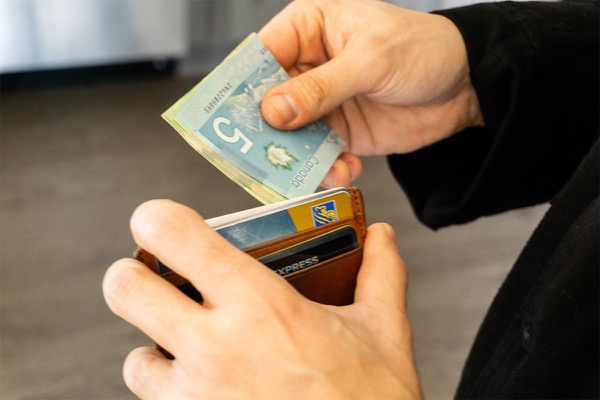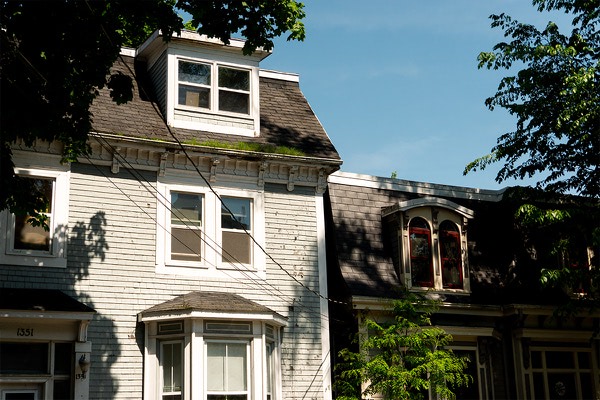Searching for a new home? Be sure to steer clear of these 5 house hunting errors for a smooth and stress-free buying experience.

5 ways to help save for a down payment
Buying a home means contributing a down payment. This is often a long, and sometimes tricky, process, but it is also an unavoidable part of homeownership. The good news is that after years of experience serving home buyers and studying the housing market, we can help you make the process a bit easier. In fact, there are several ways you can increase the efficiency of your down payment savings. Here are five tips buyers should know!
#1 Make impactful budget changes
Many people think that in order to save enough for a down payment, they should cut back on their spending elsewhere. This is a good idea and is correct in theory, but it is often improperly executed. For example, some future buyers will stop buying takeout coffee, or start purchasing no name brand grocery items. This will certainly save you some money, but is not enough of a change on its own. You would have to keep with these habits for several years before you would see any impact. Instead, we recommend taking a good look at where your money is going. Are you spending hundreds of dollars on entertainment or eating out? Are there any subscriptions you are paying for that you could cancel? It’s best to try to remove larger expenses from your budget, instead of eliminating small costs here and there.
#2 Set a target amount
With any goal, it’s most effective to determine a specific stopping point or target you want to reach. Otherwise, it can feel like you are working towards an endless goal that you will never meet, which can make it easy to give up. Saving for a down payment is no different. You might not know the exact amount you will need, but you can definitely land on a suitable estimate. Think about how much you hope to spend on your house, and your total purchasing budget. From there, you can determine how much you want to contribute upfront. For example, if you purchase a $600,000 home, you might make a down payment of 20 per cent, or you may contribute 10 per cent and pay the rest off throughout your mortgage term. Keep in mind that any down payment below 20 per cent is subject to mortgage default insurance!
#3 Check in with yourself
Having a target goal also makes it easier to hold yourself accountable. You can determine how much progress you should be making in a certain time period, and how to tell if you are falling short. You might decide to check in on your savings at the end of each month, and examine your expenses. This is the only way to be sure you are on track! Compare your progress to your target budget, as well as where you said you could cut down on expenses. Are you moving in the right direction, or do you need some more discipline? It can be hard to get the hang of things at first, which is why it’s important to check in. If you’re really struggling, you can also consider using a budgeting app. These can help you find the right saving strategy, and teach you how to manage your money most effectively.
#4 Open an FHSA
There are several types of accounts you can open that can help you save for your down payment. Registered Retirement Savings Plans (RRSPs) and Tax Free Savings Accounts (TFSAs) can be great options. However, a First Home Savings Account, or FHSA, is the newest program from the government that is specifically designed to help new home buyers enter the market. Users of this account can contribute up to $40,000 that they can use as part of their down payment. The big benefit is it is tax-free to add in and withdraw these savings, so you will never lose any of it. Whatever you contribute, you can remove it without penalty when you need it! This account gives users a solid foundation to build their savings so they can enter the housing market more easily.
#5 Speak to a broker
As always, you shouldn’t try to navigate the housing market without the help of a mortgage broker! This is especially true for first-time home buyers, who may need some extra guidance understanding mortgage products and lenders. You can visit a broker before you are ready to start house hunting, and we can help you get started on the right track. We can work together to find your budget and ideal down payment amount, and the best strategies to build up your savings. We can also help you secure your pre-approval when the time comes, and of course, we will be by your side throughout the entire approval process. A broker provides you with essential information and peace of mind when you purchase a home.
Saving for a down payment is not always easy, but with some strong strategies in place, you can make it much quicker and stress-free. Here’s to a successful home buying experience!
If you have any questions about your mortgage, get in touch with us at Clinton Wilkins Mortgage Team! You can call us at (902) 482-2770 or contact us here.


